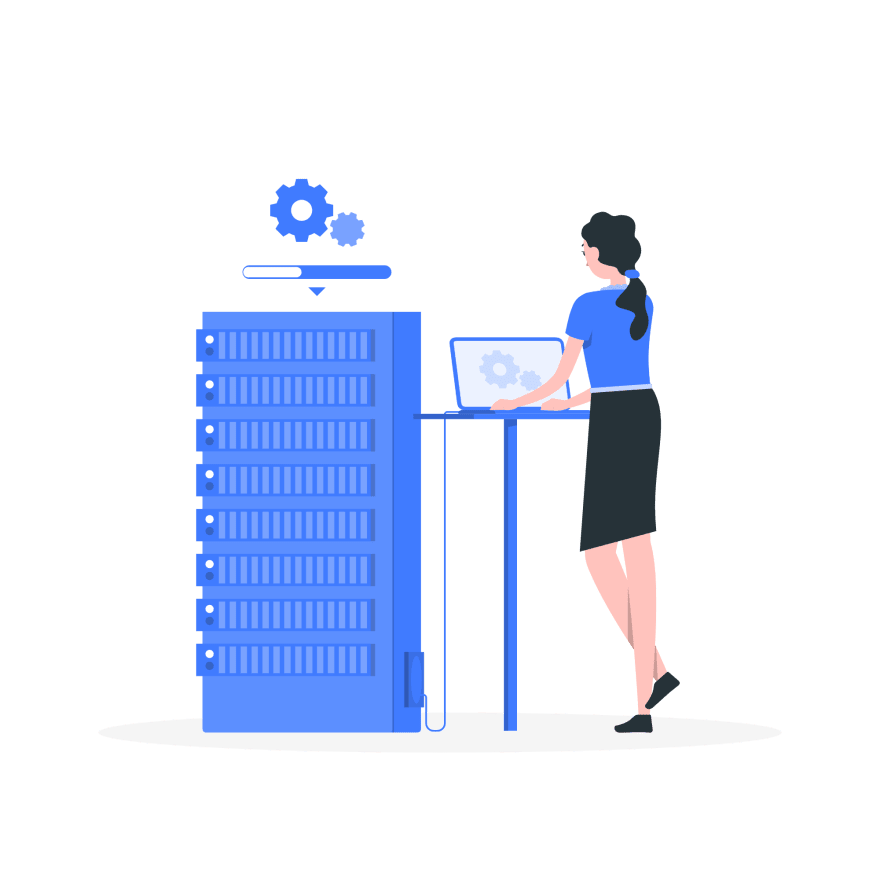For a decent amount of time now, I have been into studying and utilising cloud services for my personal projects, and yet, it always seem difficult to explain what the cloud actually is and how it operates, or how it is benefical for any industry.
So this article is more like a go-to link for me the next time someone asks me the same question, and hence, if you are here because I asked you to, you're welcome. :)
My approach for this article would not be to dive deep into the mechanics of computing on the cloud, but to introduce the concept to everyone using analogies and real-world examples, to make this as beginner-friendly as possible. Trust me, even a 9 year old (PewDiePie fans on Dev?) would understand enough about the basics.
Let's begin, but oh, wait...
$whoami
Glad you asked! I'm Parth, an undergrad engineering student with information technology majors. Apart from that, I am also an AWS User Group Leader, and a Community Builder. My interests vest particularly in practical data science and its applications, including deployment of models, creating frameworks, ensuring security, developing pipelines and everything else your organisation's entire IT department looks after. Oh, and I love mathematics until I don't need to solve gruesome equations.
So Parth, what is Cloud Computing? And why do I keep hearing it everywhere?
Umm... take a step back, and let me take control of my article and teach you in my sequence of steps, so please stop asking me questions. :(
To begin with, let's see how a set of computers interact with each other
For the longest time, two, or more than two computers have interacted with each other using what is called a network. A network utilises a set of wired/wireless connections to help all these systems communicate with each other. But why do systems communicate? Simply, to share and obtain information. These networks are used in military, schools, government organisations, companies and even by ourselves to connect with the ones that we want to.
The internet is a global system of networks, that takes the network concept to the largest scale imaginable, connecting every single device to every other device using a set of instructions. But what if you don't want to connect to a single user from across the world? What if you want to simply find the recipie for a pickle, or to watch the new episode of Rick and Morty?
Well then, what you do is you connect to a website, which is basically a collection of web pages and content that you need. But since the internet is a network of computers and not websites, the website needs to be present on one computer or the other, somewhere on the globe for you to be able to access it.
So how are websites served?
Well, using what we call a web server. A web server is simply a set of software (and hardware) that runs on a computer connected to the internet. This web server helps the website to be 'served' to a user when she demands.
Now you know why you are presented with a beautiful array of products everytime you open Amazon, it's because somewhere around the world a computer is getting that website to be served to you. How sweet is that?
Traditional methods involve using a dedicated set of computers for a web server. For huge companies like Facebook or Apple, these servers needed to be stored on physical devices hosted in a rack, or even entire room of computer servers dedicated to that web service. Every server room would need an entire fleet of employees, ranging from system administrators, developers, security, management and a system for disaster control in case of an emergency.
But that sounds like a lot of work for a company who just wants to connect people worldwide, doesn't it, Mark?
Exactly, so say hi to cloud computers. Cloud computers are nothing but a fully-managed set of resources and data centers provided by third-parties to help you run your website/project/service using privately owned but publicly available set of servers. You don't have to worry about procuring the hardware/software required to create a web server, neither do you need to worry about backups, security or failures, so all you can direct most of your/your company's focus on the product, and not how it is served.
It's like you owning a restaurant, but instead of taking care about everything including taking orders, processing payments, cooking food and getting it delivered, all you do is cook the food, and leave the rest to a service provider, and you pay them as you use their service.
Wait, so the 'cloud' part is a misnomer?
Always has been!
Well for the most part of it, yes. It is a marketing gimmick to be frank. There is no involvement of 'clouds' as we know it, but it sounds cool, so be it. Though there's definitely a lot more to the cloud than hosting recipies to view or movies for download, and I would help you know the basics of some of those in the next, and final part of the series.
So until next time, stay safe, and wear a mask!
Read the next (and final) part of this series linked below.





Top comments (0)